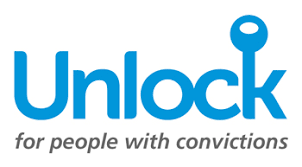Unlock, the country’s leading charity for people with convictions, has today published research on the impact of criminal records acquired in childhood and early adulthood.
New data in the report, A life sentence for young people, shows that hundreds of thousands of people are being affected every year, and often many decades later, because of mistakes they made when they were children or young adults. In the last five years alone, more than 2.25 million youth criminal records were disclosed on standard/enhanced checks by the Disclosure and Barring Service (DBS) that were over 15 years old.
Commenting on the report, Christopher Stacey, co-director of Unlock, said:
“This report shines a spotlight on the sheer number of very old and minor criminal records being routinely and unnecessarily disclosed on standard and enhanced DBS checks, raising serious questions about the effectiveness of the criminal record disclosure regime and in particular the DBS filtering process.
“From employment, volunteering and studying at university, to travelling abroad and buying home insurance, this report shows how a criminal record represents a significant barrier to thousands of people, even decades later. In the last 5 years, nearly 1 million youth criminal records on standard/enhanced were over 30 years old. This shows that the regime is in desperate need for reform.”
Unlock have also launched a CrowdJustice appeal. Money raised will help cover Unlock’s legal costs for intervening in a landmark Supreme Court case next month which will ensure that the court understands the importance of the issue, the failings of the current system, and how it could be improved. In June, the Supreme Court will hear the appeal of the Government which is arguing that their current approach to disclosing old and minor criminal record on standard and enhanced DBS checks, often decades later, is fair. Unlock disagrees and will argue that a criminal record that someone gets in their youth can, in effect, be a life sentence of stigma and discrimination. This is the first time in its 18-year history that Unlock has intervened in a legal case.
Key report findings
In the last 5 years alone on standard/enhanced DBS checks:
- Nearly 850,000 people have been affected by the disclosure of a youth criminal record on a standard/enhanced check.
- Over 3.5 million youth criminal records have been disclosed
- Over three-quarters of youth criminal records disclosed (almost 2.75 million) were over 10 years old.
- Over 2.25 million youth criminal records disclosed were over 15 years old.
- Nearly 1 million youth criminal records disclosed were over 30 years old.

